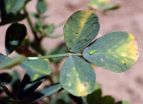(Press-News.org) Cats may hold vital clues about the health benefits of vitamin D, a study suggests.
Researchers found that higher levels of vitamin D are linked to better survival chances for hospitalised pet cats.
Cats could prove useful for investigating the complex link between vitamin D and a range of health problems that also affect people, the researchers say.
The findings may also help vets to give owners better advice about their pets' prognosis, according to researchers at the University of Edinburgh's Royal (Dick) School of Veterinary Studies.
Researchers examined blood samples from 99 pet cats that were admitted to the University's Small Animal Hospital with life-threatening conditions.
With the owners' permission, the team checked the levels of vitamin D in the cats' blood on admission.
They found that cats with higher levels of vitamin D in their blood were more likely to be alive 30 days after admission than those with the lowest levels.
This could help vets to predict which animals are more likely to survive their illness.
The study highlights the need to understand more about whether vitamin D influences the risk of cats developing a disease and how it impacts on the outcome of their illness, the researchers say.
Vitamin D has been linked to helping a range of health problems in people, including cancer, infections and multiple sclerosis.
It is found in oily fish, cheese and egg yolks and is available as a supplement from health food stores.
Humans can also produce vitamin D in the skin after exposure to sunshine but cats can only obtain it from their food.
The research provides the foundations for studies to investigate whether adding vitamin D to hospitalised cats' diets improves their survival chances. The results of these studies could help to inform clinical trials of vitamin D supplements in people.
Dr Richard Mellanby, Head of Small Animal Medicine at the Royal (Dick) School of Veterinary Studies, said: "At the moment, it is difficult for veterinarians to offer accurate prognostic information to the owners of sick cats. Our study demonstrates that measuring a key vitamin D metabolite in the blood predicts disease outcome with a much greater degree of accuracy than many other many other widely used measures of disease severity.
"It is important to remember that too much vitamin D can be poisonous to cats. Most cat foods contain a standard amount of vitamin D and there is no need for owners to add supplements."
The study is published today in the journal PLOS ONE. It was funded by Petplan Charitable Trust. Dr Richard Mellanby is a Wellcome Trust Intermediate Clinical Fellow.
INFORMATION:
Eighty percent of a population of Burmese long-tailed macaques on an island in southern Thailand use stone and shell tools to crack open seafood, and do so using 17 different action patterns, according to a study published May 13, 2015 in the open-access journal PLOS ONE by Amanda Tan from Nanyang Technological University, Singapore, and colleagues, under an 8 year field project led by Michael D Gumert, also from NTU.
The authors of the study explored variation in how Burmese long-tailed macaques used percussive stone and shell tools to hammer coastal foods on Piak Nam ...
Investigators at the Stanford University School of Medicine have identified a pattern of gene activity that could help scientists create a blood test for quickly and accurately detecting whether patients are experiencing a deadly immune-system panic attack.
Sepsis is a whole-body inflammation syndrome set off when the immune system wildly overreacts to the presence of infectious pathogens. It is the leading cause of hospital deaths in the United States, accounting for nearly half of the total number, and is tied to the early deaths of at least 750,000 Americans each year. ...
The potato leafhopper is a tiny insect--barely half the size of a grain of rice--with a bright lime green color that helps it blend in against plant leaves. Despite its unassuming appearance, this little pest causes big headaches for farmers across the eastern half of the United States. By feeding voraciously on many crops, including potatoes, green beans and alfalfa, the migratory potato leafhopper causes untold millions of dollars in damage every year.
Now, a study by entomologists at the University of Maryland and Queens College at the City University of New York ...
Alcohol drunk by a mouse in early pregnancy changes the way genes function in the brains of the offspring, shows the recent study conducted at the University of Helsinki. The early exposure was also later apparent in the brain structure of the adult offspring. The timing of the exposure corresponds to the human gestational weeks 3-6 in terms of fetal development.
In addition, the exposure to alcohol was found to cause similar changes to gene function in other tissues of the infant mice. These results suggest that alcohol causes permanent changes to gene regulation in ...
Two experiments at the Large Hadron Collider at the European Organization for Nuclear Research (CERN) in Geneva, Switzerland, have combined their results and observed a previously unseen subatomic process.
As published in the journal Nature this week, a joint analysis by the CMS and LHCb collaborations has established a new and extremely rare decay of the Bs particle (a heavy composite particle consisting of a bottom antiquark and a strange quark) into two muons. Theorists had predicted that this decay would only occur about four times out of a billion, and that is roughly ...
Benign prostatic hyperplasia (BPH) -- or, simply, prostate enlargement -- is one of the most common diseases of aging among men in the United States. In fact, by the time they hit 80 or above, upwards of 90 percent of all men in the U.S. experience some degree of prostate enlargement. And of those, 40 percent require medical treatment.
Despite the fact that the disease impacts so many people and carries with it a huge price tag -- estimated at tens of billions of dollars per year in medical expenses and lost wages, among other costs -- the factors that contribute to BPH ...
For the first time, satellite mapping of Latin America shows that the continent's agricultural expansion has waned in the wake of the global economic downturn, according to UBC research.
"Nearly every agricultural region across Latin America slowed down in expansion from 2007 to 2013, compared to the previous six years," says Jordan Graesser, the study's lead author. Graesser is a visiting international student at UBC's Liu Institute for Global Issues and the Institute for Resources, Environment and Sustainability.
The study, recently published in Environmental Research ...
ITHACA, N.Y. -- If you're planning to fly over the holiday, plan to drink some tomato juice. While examining how airplane noise affects the palate, Cornell University food scientists found sweetness suppressed and a tasty, tender tomato surprise: umami.
A Japanese scientific term, umami describes the sweet, savory taste of amino acids such as glutamate in foods like tomato juice, and according to the new study, in noisy situations -- like the 85 decibels aboard a jetliner -- umami-rich foods become your taste bud's best buds.
"Our study confirmed that in an environment ...
PITTSBURGH -- A research team led by the University of Pittsburgh's Jeremy Levy has discovered electrons that can "swing dance." This unique electronic behavior can potentially lead to new families of quantum devices.
Superconductors, materials that permit electrical current to flow without energy loss, form the basis for magnetic resonance imaging devices as well as emerging technologies such as quantum computers. At the heart of all superconductors is the bunching of electrons into pairs.
Levy, Distinguished Professor of Physics and Pittsburgh Quantum Institute director, ...
The type of perfectionist who sets impossibly high standards for others has a bit of a dark side. They tend to be narcissistic, antisocial and to have an aggressive sense of humor. They care little about social norms and do not readily fit into the bigger social picture. So says Joachim Stoeber of the University of Kent in the UK, who compared the characteristics of so-called other-orientated perfectionists against those of perfectionists who set the bar extremely high for themselves. The study is published in Springer's Journal of Psychopathology and Behavioral Assessment.
Perfectionism ...


